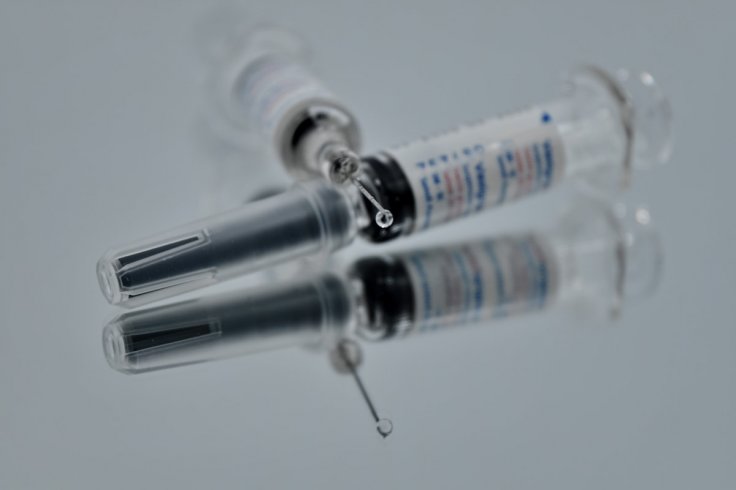British durgmaker AstraZeneca has earned the license to enter the next phase in testing of AZD1222 that was developed by combined research and study of the University of Oxford and AstraZeneca. The drug manufacturer is one in the 23 countries to start trial tests in Phase III, while there are at least 150 candidates trying out a new potential vaccine to combat COVID-19.
Between April 23-May 21, Oxford University with AstraZeneca conducted human trials of the vaccine – where 1,077 volunteers got themselves injected with AZD1222 shot. Months after they were given these shots, the protective neutralizing antibodies developed stronger while T-cells (T lymphocytes) in their bodies multiplied to attack any pathogen inside the human system.
We are collaborating with world leading experts to help develop a registry-based clinical trial (R-RCT) to gain learnings and experiences that can be applied to future trials and drive innovation. pic.twitter.com/Xaf2gcNJK6
— AstraZeneca (@AstraZeneca) July 20, 2020
Sarah Gilbert who has developed the antidote against the deadly pathogen asserted, "There is still much work to be done before we can confirm if our vaccine will help manage the COVID-19. We still do not know how strong an immune response we need to provoke to effectively protect against SARS-CoV-2 infection," she was quoted as saying by Reuters.
Astra has been working on what is medically termed the 'two-dose regimen'. A week after Moderna announced that it would start the Phase 3 trial on 30,000 humans from July 27, AstraZeneca has now hinted that they would advise Moderna to also develop the two dose regimen. The Director of Jenner Institute at Oxford, Adrian Hill, has hailed the vaccine that is in its experimental stage, and said, "In particular, the AZD1222 trigger both arms of the immune system."
Even WHO described the results as positive though "have a long way to go." Dr. Mike Ryan, executive director of the WHO's emergencies program, said at a press conference, "In generating T-cell responses and generating neutralizing antibodies, this is a positive result. But again, there is a long way to go. We now need to move into larger-scale real-world trials."
What is 2-dose regimen?
The AZD1222 basically charges the antibodies inside the human system, while it also strengthens the white blood cells – T lymphocytes – using which the body kills any host pathogen in the system. T cells that the vaccine will cater to at first, are developed in the thymus gland and they are created as precursor cells from the bone marrow.
The medically known T cells that develop once they exit the marrow, are CD4+ and CD8+. The study by Oxford highlights the two most important factors in Astra's vaccine – while CD4+ traces the alien host antibodies, CD8+ directly kills the virus that has attacked the human system.

Astra's vaccine aims to trace and kill the host virus inside the human body, while it enhances the immune system by strengthening the white blood cells. These T cells are also medically termed as 'killer T cells' as they eliminate the pathogen out from the body. AZD1222 in the meantime leads to certain side effects that experts at Oxford have hinted "can be treated with paracetamol."
Moreover, now AstraZeneca on Monday claimed that it is working to develop initial doses that can treat at least 66 million people. The vaccine is said to also treat the affected in late stages of COVID-19, while post cure, the immune system is said to be well responsive to any virus, till two months after being treated.
Boris Johnson Hails Combined Effort
UK Prime Minster Boris Johnson has hailed the combined effort to develop the antidote and hailed the outcome as "very positive news". While early results showed no long term side effects in at least 10 patients who were injected with two doses– one month apart, AZD1222 now stands as second possible potential vaccine candidate, and is being hailed by the WHO.
The NIAID head Dr Fauci had hinted that there are viable vaccine candidate working on the medication that can combat COVID-19, last week. Now, Hill from Jenner institute now says, "Outcomes of experiments till now show that we can generate millions of doses by September, however it depends how early large scale trials complete."
Oxford has given AstraZeneca the license to sign up with other drugmakers. AstraZeneca has already signed deals with the Pfizer and BioNTech to produce at least 2 billion doses, however until when is yet to be ascertained. The United States has also invested nearly $1.2 billion in the development of AZD1222, and this makes US one of the first customers of the vaccine, once it is developed.
Also, Wafaa el-sadr, professor of epidemiology and medicine at Columbia University stressed that, "I think we still have to be very cautious at this point, because this phase 1 and 2 study was done on a little more than a 1,000 participants. I do think it is important to stress that we cannot let our guard down as yet as we don't have a vaccine in hand, and for the foreseeable future, we will have to continue to be careful to adhere to the public health measures that can prevent transmission of this virus."









